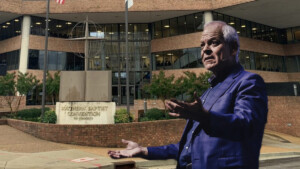
Book Review: Everyday Revolutionary by J.D. Greear
Protestia has been covering J.D. Greear for almost a decade. Long before The Gospel Coalition began regularly publishing his essays and platforming his brand of “above-the-fray” Christianity, we were documenting the pattern that now defines his ministry. Back when this site operated under the Pulpit & Pen banner, Greear’s knack











